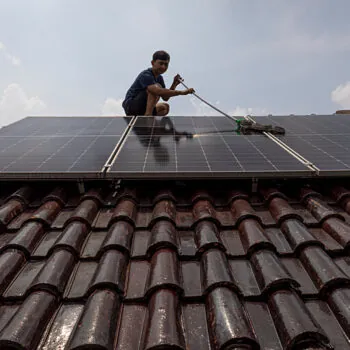Last month, ahead of the June sequence of G7 Finance Ministers and Leaders, E3G wrote (here and here) about the renewed relevance of the Gs in 2021.
We noted that we needed to see commitment and concrete steps from both the G7 and G20 ahead of COP26 in order to make the multilateral system work to support global recovery and sustainable development.
This July will see the G20 take to the international financial diplomacy stage:
- On July 9th and 10th, G20 Finance Ministers will be meeting in Venice for their third official meeting of the year (and for the first time in person) under Italy’s 2021 G20 Presidency.
- This will be followed on July 11th by Italy’s International Conference on Climate Change. This event will gather several high-level speakers, including IMF Managing Director Kristalena Georgieva, ECB President Christine Lagarde, U.S. Treasury Secretary Janet Yellen and U.K. COP President Alok Sharma. The Venice Conference will be structured around panels covering themes including ESG disclosures, private sector involvement and financing the climate transition in emerging and developing economies. Italian Finance Minister Daniele Franco will close the event.
Why does this sequence matter?
Typically, the July meeting of G20 Finance Ministers is not the one that garners most attention. Flagship meetings of G20 Finance Ministers are their April meeting, before the IMF/World Bank Spring Meetings, and their October meeting, before the meeting of G20 Leaders closing the G20 sequence for the year. In addition, at least on paper, the Venice Conference is simply that – a conference.
This year, however, is different, and July’s meetings take on a new importance.
Expectations were high for the June G7 sequence. The global recovery and reset needed in 2021 mean that significant resources are needed this year (and, in all likelihood, this will extend into 2022). We know that decisions taken on this front – how much financial resources are deployed; are they deployed inclusively; are they going to the right priorities – will be critical to set the course for climate safety for the next decade. This is why the G7 sequence was key.
However, despite some good results, G7 countries left a lot of homework on the table. G7 countries will have to address this. In the meantime, this homework is for the G20 to pick up – even if brokering consensus on climate issues can be much more challenging in the G20 than in the G7. And because brokering such consensus can be difficult in G20 format, the Venice Conference, which will bring together like-minded climate champions, can serve as a helpful backup to move forward certain conversations.
What do we need to see from the July sequence?
What we need to see in July are the hooks that will lead to results in October. In other words, what is needed now is a comprehensive agenda that G20 Finance Ministers or Leaders should deliver on with concrete action and measures before the end of the year. This agenda should be delivered preferably through the G20 Finance Ministers’ communiqué on 10th July with the Italian Presidency’s closing remarks at the Venice Conference filling in any gaps on the 11th.
The agenda must deliver the financial firepower and reform needed for global prosperity and resilience, with adequate momentum. It should cover the following major items:
- Climate finance, with efforts from UK COP President Alok Sharma and other relevant officials present at the Venice Conference to close the gap on the $100 billion promise in 2021 and take steps towards achieving a higher collective aim by 2025, in order to repair trust;
- Debt and fiscal space for vulnerable countries, with a recognition that, while the debate on Special Drawing Rights is key, it cannot be a silver bullet. More systemic solutions are needed to durably unlock fiscal space in vulnerable countries (e.g. reviewing the IMF and World Bank Debt Sustainability Assessment framework). Sustaining fiscal space will be required for the recovery and building forward better;
- Public banks’ firepower, with a statement on the need to ensure public development banks’ alignment with the Paris Agreement and to discuss recapitalization needs, particularly for Multilateral Development Banks in 2022;
- Greening supervision of the financial system, with a signal to review the existing international prudential framework designed by the Basel Committee on Banking Supervision to ensure that it is fit for the purpose of addressing the climate challenge;
- Private finance, covering items such as mandatory disclosure requirements and defining standards for private sector transition plans;
- Defining a global framework for green norms, which will be needed in coming years by all types of actors – sovereign, public or private.
Setting this comprehensive agenda in July is necessary to ensure the G20 is on track for the October meetings of its Finance Ministers and Leaders. It is also needed to ensure Leaders and Ministers have the momentum needed ahead of COP26. This agenda is ambitious, but also achievable. The challenge awaiting us in the future, if this opportunity is not grasped, will be much greater.


